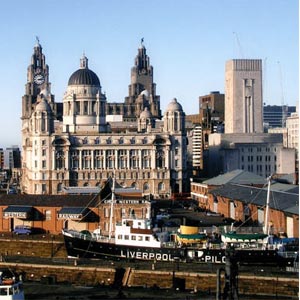History of the city of Liverpool
Liverpool history can be traced back to the slave trade of the eighteenth century when cotton goods and hardware were transported to West Africa in exchange for sugar, rum, tobacco and raw cotton. This practice was abolished in 1807 and the port city of Liverpool became the entry point for migrants from the erstwhile British colonies. This led to the cosmopolitan character of the city, which is characterized by large numbers of Caribbean, Indian and Chinese communities in Liverpool.
Shipbuilding was a major industry in Liverpool. With its strategic location as the western gateway for transatlantic supplies during World War II, Liverpool experienced heavy bombing during the Blitz. The city suffered considerably during the May Blitz in 1941. Liverpool history shows that the city played no small role as the Combined Headquarters of the Western Approaches and the fight against the German U-boats.
After the World War, Liverpool saw a period of decline until the beats of the Beatles began to be heard in the early 1960s. The death of the heavy industries in the UK hit Liverpool adversely and then followed a period of civil unrest. This was seen in the 1981 Toxteth riots. Liverpool took to urban regeneration and redevelopment projects began to take off, such as the one at Albert Dock. These derelict docklands were transformed into a recreational area. The Ropeways redevelopment was another such project. June 4, 2003 was the historic day on which Liverpool was named European Capital of Culture.













